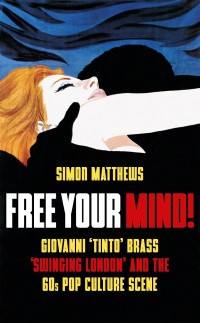SIMON MATTHEWS on Alfonso Cuarón’s 2006 film Children of Men.
PD James died in 2014. Her obituaries were good, the Daily Telegraph proclaiming her ‘the most celebrated in a long and distinguished line of women crime writers stretching back to Dorothy L Sayers and Agatha Christie.’ Elsewhere, claims that she was either ‘the queen of crime’ or ‘the grande dame of mystery’ were commonplace.
Over 49 years she published nineteen books, which, for the genre she worked in (crime and detective fiction) was not especially prolific. Her first novel, Cover Her Face, featuring Detective Chief Inspector, and minor poet, Adam Dalgliesh of New Scotland Yard, appeared in 1962. Like virtually all of her later works, much of its plot is set within well-known UK bureaucracies, such as the criminal justice system and the National Health Service, areas James was personally familiar with, having been a senior civil servant since the 1940s. It was carefully written, literary even, and reviews were fair with only a suggestion that her approach was a bit old fashioned. Rather like CP Snow, she was taken somewhat more seriously than her peers, part of her attraction being that, like him, she seemed to offer an insider view. Kingsley Amis astutely observed that she was ‘Iris Murdoch, with murder’.
Film or TV adaptations of her work didn’t arrive until 1982. Which was rather late. Others of her cohort, contemporaries who had first appeared in print in the 1960s like Nicholas Freeling (Van der Valk), HRF Keating (Inspector Ghote) and Dick Francis, were all on the small (or big) screen much earlier. When she finally joined them with An Unsuitable Job for a Woman, her preference for home-counties settings and establishment values certainly suited the times. A decade later, she finally broke cover and went leftfield with The Children of Men, published when she was 72.
A full-on dystopia, this was set in the UK of 2021 where the population is plummeting after human fertility dropped to zero in 1994. Everyone has lost interest in politics, and to help manage its decline, the country is run by an authoritarian committee of experts led by Xan Lyppiat. A massive migrant population (‘sojourners’) has been brought in to boost the workforce and there is an efficient, and heavily camouflaged, state euthanasia policy to ensure that the remaining public services aren’t overwhelmed with geriatric cases.
The central character is Theo, Xan’s cousin, who comes across a pregnant woman (the first such for 27 years) and eventually leads the country back to decency. On publication it was proclaimed her greatest work, the New York Times calling it ‘a trenchant analysis of politics and power that speaks urgently’ and the Observer stating it was ‘unsurpassed by anything James has written.’
With praise like this, criticism is superfluous. But some of it seems muddle headed. Specific short comings include no explanation being given for human fertility failing in such a catastrophic fashion. It just happens, a narrative device so perfunctory that it might almost be an allegory. And would politicians simply disappear leaving a few dedicated experts, academics and military figures to hold things together? One wonders if this reflects James’s own views as a civil servant: that you’d get better government if you could get (most) politicians out of the way.
There is also no sense of the wider world. Surely in a global crisis of these dimensions, powerful regimes would prey on weaker nations, and issues to do with energy and food security would be continual. Finally, her denouement, when Theo replaces Xan, is so simple one wonders if it isn’t ‘symbolic’ in some way. Rather like one of Mary Renault’s or Robert Graves’s novels set in the ancient world. Everything is very home counties, very churchy, very Anglican and very Tory.
None of which was a surprise, really. James had been appointed a BBC Governor in 1988, advancing to the House of Lords as Baroness James of Holland Park, of Southwold in the County of Suffolk in 1991. She sat as a Conservative. (In time New Labour would respond by sending Ruth Rendell and Janet Cohen to keep her company, a rare example of best-selling writers featuring in inter-party rivalry in the legislature.)
James was also a lay patron of the Prayer Book Society, a group formed in 1972 to keep the Book of Common Prayer – 1549, last revised 1662 – as an authorised Anglican text. Which might sound an obscure detail, until we note the other personnel involved: Commander Drage RN, former head of M16 (‘trade adviser’) in the Far East; Anthony Kilmister, a key figure in the Young Conservatives and long-term organizer of the Royal Command Film Performance; Lady Playfair, whose husband, Sir Edward, was Permanent Secretary at the Ministry of Defence and later Chairman of the National Gallery.
This was the establishment writ large, and it did her no harm. The film rights for The Children of Men were optioned in 1997. Mexican director Alfonso Cuarón came on board whilst making Harry Potter and the Prisoner of Azkaban and after eight years a screenplay was pieced together, credited to five writers. A comprehensive re-imaging of James’s book, it shifts the action to 2027. It also provides us with an explanation for human fertility collapsing. A devastating flu pandemic has happened, as has a widespread conflict involving the use of nuclear weapons.
Grimly plausible (even when watched in 2006–2007), the UK portrayed here is no pretty place. Because of the global crisis, millions of refugees have arrived and are subject to brutal treatment by a semi-fascist border force. There are appalling refugee camps, run by armed mobs. Unlike James’s future, a government (of sorts) still exists exercising control via the military.
In this version Theo’s cousin, now called Nigel and played with disarming urbanity by Danny Huston, is one of many: a minister tasked with saving major works of art for posterity. As Theo Faron, a role George Clooney was considered for at one point, Clive Owen excels. He provides a superb study of a demoralised, heavy drinking, Graham Greene, burnt-out case, a depressed man coping with the multiple stresses of a life that he no longer believes in.
The settings are marvellous, the acting terrific and the soundtrack – which ranges from Deep Purple to Jarvis Cocker via Donovan and King Crimson – perfectly matches the moods it conveys. The conclusion differs too. In a scene replete with religious iconography, but never overwhelmingly so, Faron escorts a single young pregnant asylum seeker to safety before collapsing and being left behind. No happy ending for him.

James was pleased with the outcome. After a standing ovation at the Venice Film Festival, and Academy Award nominations (none successful), the box office returns were mixed and it ended up making a small loss. But its reputation continues to grow, film critics ranking it today thirteenth in a list of the Top 100 films of the twenty-first century. Its apparent prescience, given the 2015 European migrant crisis, the Brexit/Trump events of 2016, the COVID-19 pandemic of 2020 and the Ukraine-Russia war of 2022 is striking, some might consider alarmingly so.
A great film and a rare example of one that improves on its written source, it also takes its place in the distinguished line of UK dystopias stretching from The War of the Worlds to Day of the Triffids to The Drowned World… though in this instance it’s one that we seem to be living through, fertility excepted, on a daily basis.
from the maker of:
see also:






